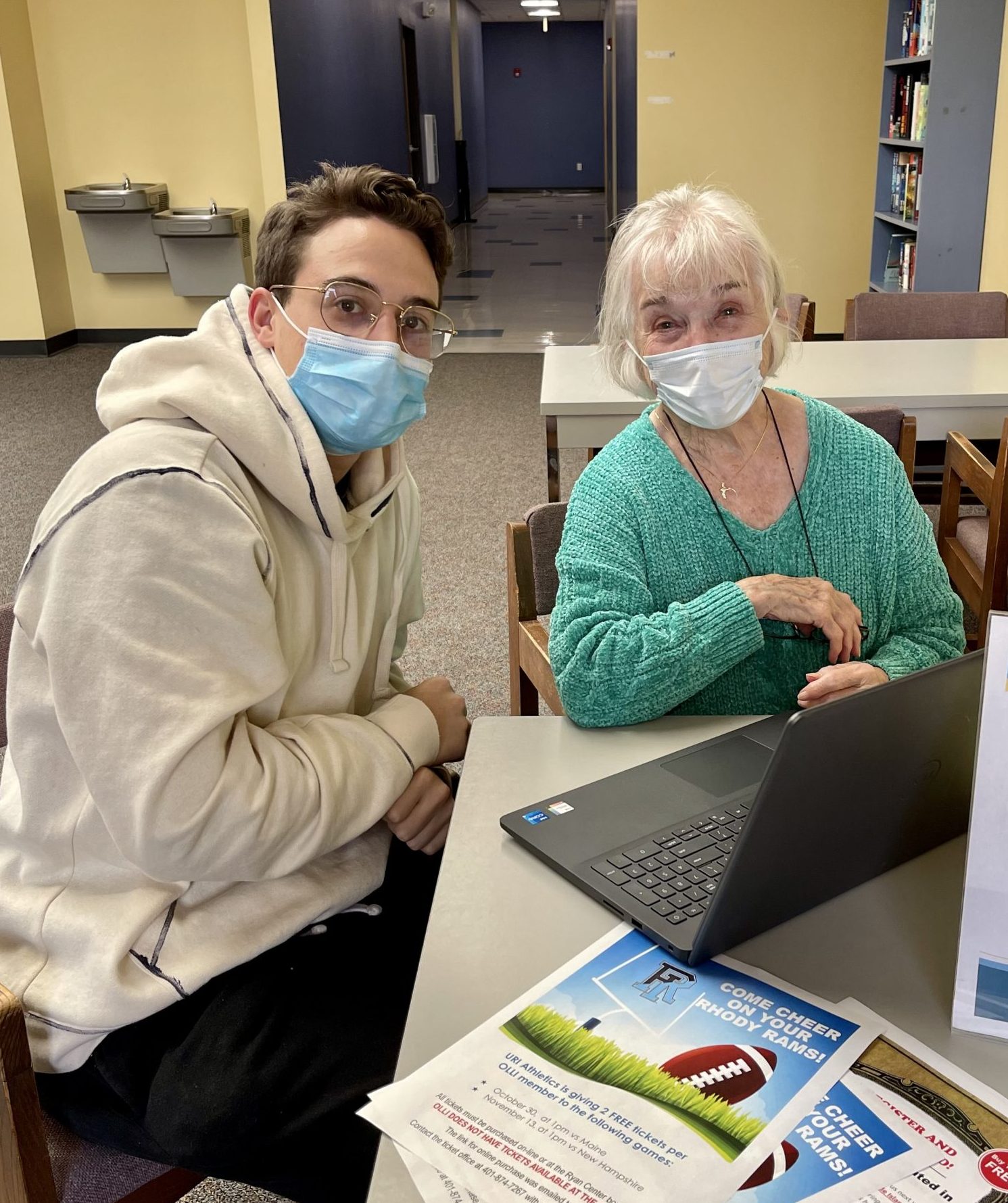OLLI URI focuses is working to make the Kingston campus more inclusive for people of all ages. PHOTO CREDIT: web.uri.edu/olli/
The University of Rhode Island’s Osher Lifelong Learning Institute (OLLI) has committed itself to a global networking program to engage older adults in academia, making Kingston a community for all ages.
Beth Leconte, executive director of OLLI, as well as other committed members of the program, envision a Kingston campus that encourages an intergenerational approach to learning. While most URI students fall into the “traditional” college-age group between 18 and 22 years old, OLLI welcomes students aged 50 and up to study and collaborate in their larger-than-life program.
OLLI helped in declaring URI an Age Friendly University (AFU) in 2018. The AFU movement originated in Dublin, Ireland in an effort to endorse lifelong learning across the globe.
Since its start in Kingston, the AFU has influenced people of older generations to spearhead their academic ambitions, hoping to create an environment where students of all ages can call URI home. OLLI now uses its AFU status to create programs that fit students’ needs later in life.
“What is brought with being an AFU is to show that learning and living continues at whatever age, so being part of an age-friendly university will allow [OLLI members] to do a variety of things,” Leconte said.
In addition to opening doors for OLLI students, being an AFU, according to Leconte, can help “bridge the gap” between young undergraduates and older scholars.
Leconte said that age-friendly learning goes beyond the classroom. Instead, she believes that integrating all ages can be beneficial for the life skills of both generations.
“Some younger students might not have much exposure to those older than 50,” Leconte said. “Everyone is going to be entering the workforce and working with this age group, so [younger students] bring the latest and greatest knowledge while learning from older mentors. I think that life skills and experiences can go back and forth.”
Jet Vertz, a teacher at OLLI, was previously an aviation business executive and vice president of Pratt & Whitney Aircraft. While already having an impressive resume, Vertz said that his academic journey was far from over. At 74 years old, he believes his potential is boundless.
“[Older individuals] have the capacity to contribute more to the world,” he said. “We shouldn’t be wasting away our knowledge, our wisdom by doing nothing and being lost.”
Phil Clark is a URI professor of gerontology, OLLI member and AFU committee member. He said that becoming an AFU is a lifelong commitment by URI to change the expectations of learning.
An estimated 50 additional universities in the United States are also recognized as age-friendly universities. Clark said that in addition to accommodating learning opportunities for older students, URI should consider developing a retirement association for the community to continue appreciation for older faculty.
“We need to create a place and a space for older people who have retired from serving the University to come back and be a part of the community,” Clark said. “It would be great to keep in touch and support people who have retired.”
Clark said that 10 principles are endorsed nationally by all AFU organizations. Each of these principles works towards improving advocation for the education of older generations. The committee is working “feverishly” on each of these concepts.
According to him, further commitment to the AFU principles will benefit undergraduate students as well as learners within the OLLI program.
“We really need to get people to see this as a major shift in the way a University sees its educational mission,” he said.
Leconte, Vertz and Clark encourage the entire Rhody community to visit the OLLI webpage to learn how to support lifelong education at URI.

